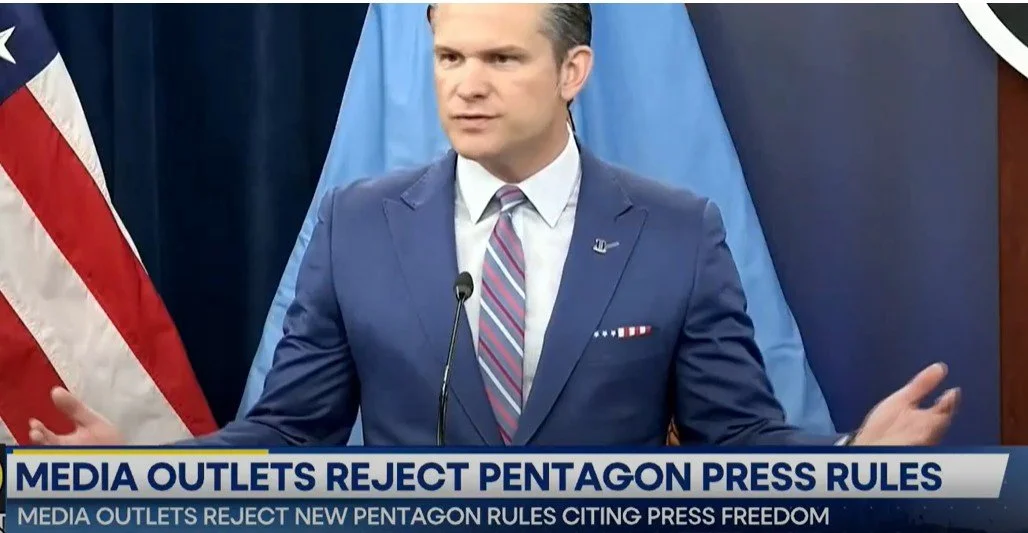Journalists Turn in Their Badges — and America Loses a Check on Power
Defense Secretary Pete Hegseth’s latest move tightens the lid on Pentagon transparency — and on the free press that keeps power accountable.
It’s been more than fifty years since the Pentagon Papers exposed the lies behind a war. That historic act of journalism - done in defiance of government secrecy - proved why a free press is essential: it keeps power honest.
Just a few years later, Watergate drove the point home. Watching reporters unravel corruption at the highest levels of government wasn’t just thrilling - it was transformative. That Watergate moment changed my life. It inspired me to study journalism at the University of Missouri and later become a wire service reporter with UPI, where I saw firsthand the power of asking hard questions and demanding straight answers.
Now, in a bitter twist, the same institution whose name became synonymous with transparency’s triumph over deception is closing its doors to the press altogether. This week, dozens of seasoned defense reporters turned in their Pentagon credentials rather than accept new restrictions imposed by Defense Secretary Pete Hegseth. The policy effectively criminalizes routine reporting - barring unsanctioned interviews, limiting movement, and requiring all information to be “cleared” before publication. In other words, the Pentagon now wants to decide what the public gets to know about how its $1 trillion military operates.
The response has been swift and united: nearly every major news organization refused to comply. Veteran correspondents left their posts with visible sadness and a shared sense of alarm. A flyer briefly appeared outside the “Correspondents’ Corridor” reading, “Journalism is not a crime.” By morning, it was gone - another quiet metaphor for the moment.
The implications are enormous. This isn’t just about access to a building - it’s about access to truth. The First Amendment isn’t a courtesy; it’s a covenant. The Founders knew unchecked power breeds abuse, which is why freedom of the press was written into the Constitution’s very first line of rights. If journalists can’t question those who wage wars, allocate trillions, and make life-and-death decisions, who will?
As historian Timothy Snyder warns in On Tyranny, the muzzling of a free press is one of the earliest and most reliable signs of authoritarian drift. “To abandon facts is to abandon freedom,” he writes. Every tyrant begins by weakening the institutions that challenge them - and none is more threatening to tyranny than independent journalism. The silencing of reporters, whether through intimidation, propaganda, or bureaucratic restriction, is never the last step. It is always the first.
We’ve seen this tension before. From Nixon’s “enemies list” to Spiro Agnew’s mockery of the “nattering nabobs of negativism,” power has always resented being held to account. But the record is clear: every time government tries to muzzle the press, the truth eventually finds a way out.
What happens now? Media outlets are banding together, preparing possible legal challenges, and asking whether this blatant overreach can and should be tested in court. One can almost hear Agnew cheering from history’s sidelines - but America has a longer memory and a stronger spine than that. The Pentagon may have reclaimed its badges. But it hasn’t silenced its watchdogs.
What do you think - can the press reclaim its rightful place inside the five walls of power?

